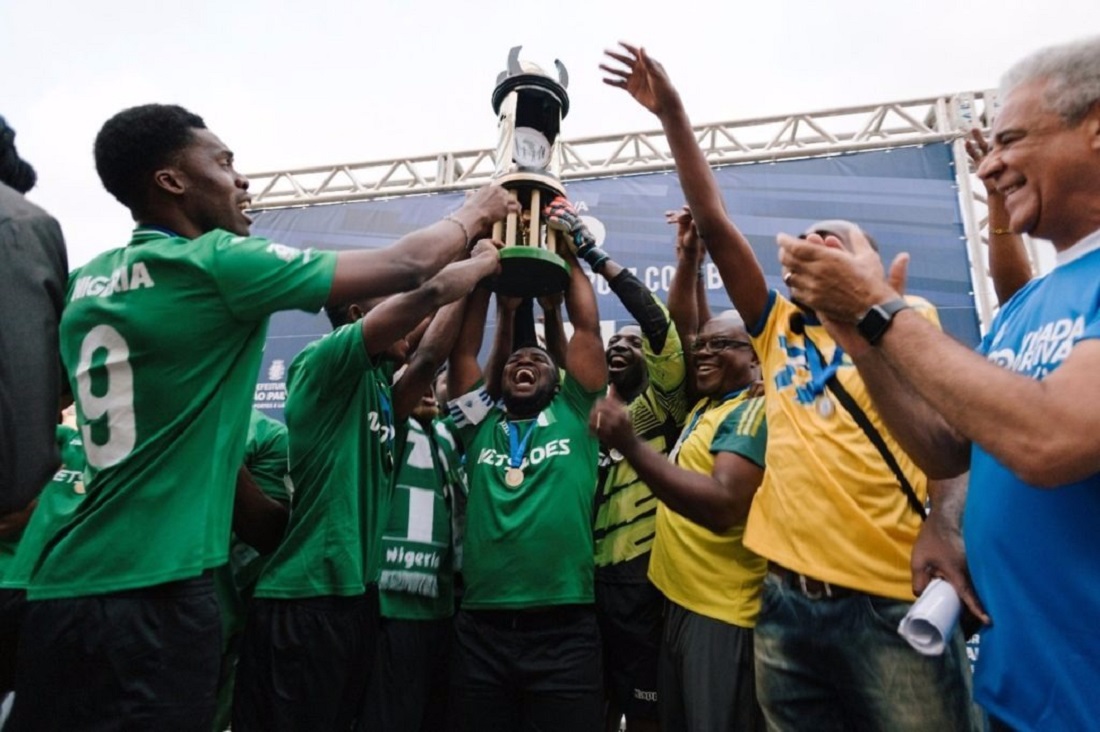RIO DE JANEIRO, BRAZIL – This year’s Refugee and Immigrant World Cup, which is now in its sixth edition, is entitled ‘Take a Minute to Listen to a Person Who Has Left Their Country’.
The event was created and is organized by the NGO Africa do Coração, with the support of the UN Refugee Agency (UNHCR) and the International Organization for Migration (IOM).

The athletes, refugees or immigrants, are from Guinea-Bissau, Tanzania, Lebanon, Mali, Venezuela, Cameroon, South Korea, Democratic Republic of Congo, Togo, Colombia, Haiti, Gambia, Angola, Nigeria, Niger, and Benin.
This year, stages of the Refugee Cup were also held in Brasília (DF), Curitiba (PR), Recife (PE), Porto Alegre (RS) and Rio de Janeiro (RJ). Altogether, the competition’s 2019 edition will involve approximately 1,120 athletes of 39 nations.
After the World Cup stage in São Paulo, the winning teams in each state will face each other in a tournament in Rio de Janeiro.
According to Abdo JA Rour, from the NGO ‘Africa do Coração’, the aim is that this event will also acquire an international dimension in the future, gathering refugees and immigrants from all over the world.
“The World Cup is for the integration of refugees into Brazilian society, particularly in São Paulo, which is a welcoming state with great cultural diversity,” said Braima Mane, coordinator of the Refugee Cup in São Paulo in an interview with Agência Brasil.
“We have designed the World Cup for integration, harmony and to help portray refugees in a different way, knowing that soccer is the greatest means of social inclusion,” he said.
According to him, the Refugee Cup also seeks to provide an opportunity for “those who had their dreams of becoming soccer players in their countries of origin curtailed because of war, racial persecution or other reasons,” he said.
On Saturday, October 5th, eight matches will be played, starting at 9 AM, on Rua Pedro de Toledo 1,651, in Vila Clementino, in a single elimination scheme: whoever loses, leaves the competition. The competition’s last eight matches will be held on Sunday, October 6th.
The final four matches will take place on Sunday, October 13th. The grand final will be held at the Pacaembu Stadium on Sunday, October 20th, at 2 PM. Admission is free.
In addition to the games scheduled for today, on Sunday, October 6th the public may also visit a cultural exhibition, with music, dance, a round of talks, an exhibition of products and typical foods.
At the event’s opening, which took place yesterday afternoon at the Museu do Futebol (“Soccer Museum”), Carlos Bezerra Jr, São Paulo’s municipal secretary for sports and leisure, said he hoped the World Cup would bring visibility to refugees and migrants.
“I hope it brings visibility to those who feel invisible. May it unite those who feel alone. May it bring joy when the nostalgia and melancholy of longing for home strikes. May it show us and confirm that sport is more than just competition and the practice of a sport. Sport unifies, includes and socially transforms,” he said.
Source: Agência Brasil

